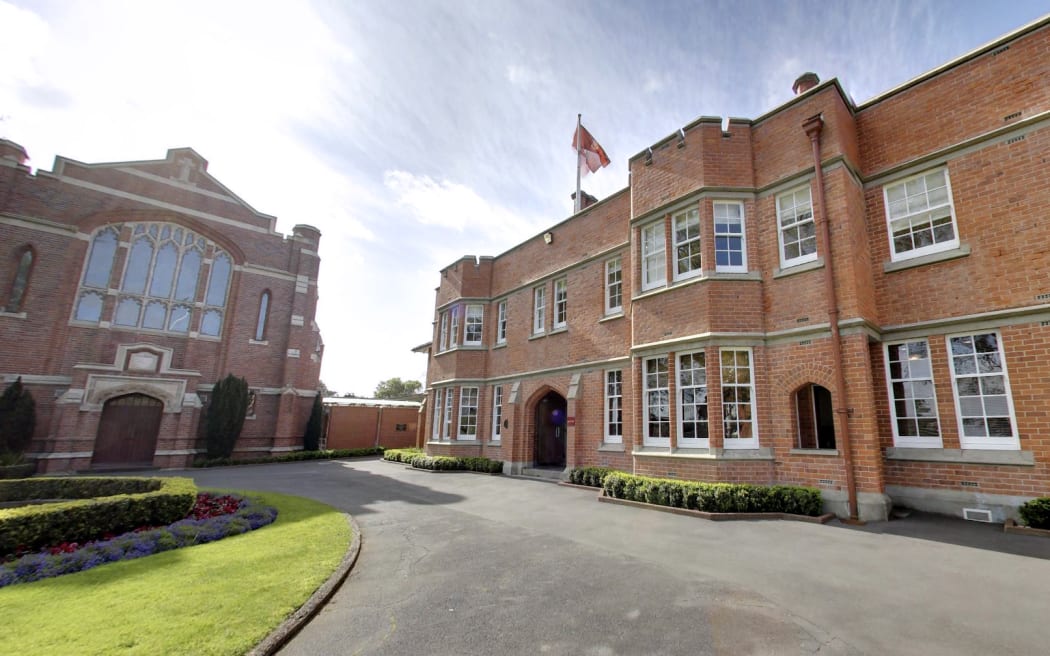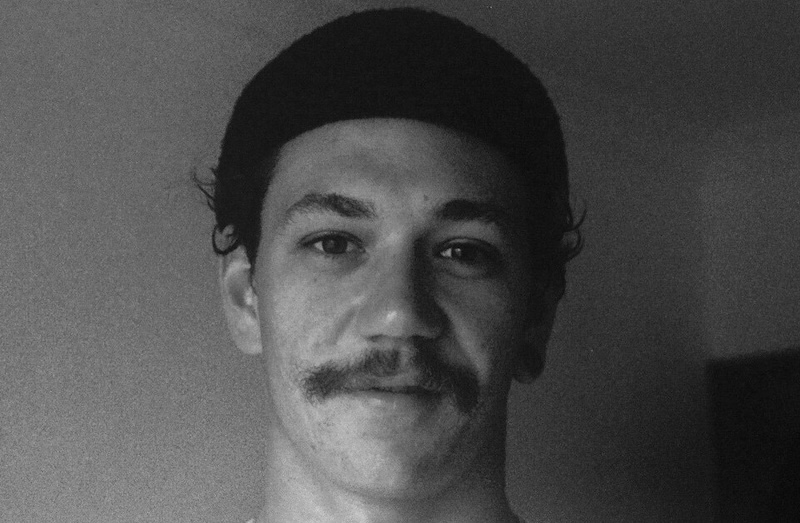National MP Sam Uffindell has denied terrifying a flatmate, but admitted beating a younger student during his school days. However, he says that boarding schools were full of ‘rough and tumble’ in the 1990s. Was violence and bullying really par for the course? And if it was, has anything changed?
Sam Uffindell says there was ‘rough and tumble’ at boarding schools in the 1990s
Photo: RNZ / Samuel Rillstone
Warning: This story contains offensive words and descriptions of violence
David* was 12 years old when he first entered the King’s College dormitories in 1993. He was excited; he had come to sit his scholarship entrance exams and was staying overnight. He remembers sitting on his bed and seeing some older kids strutting past, socks filled with tennis and golf balls slung over their shoulders. He says they used them to hit the younger kids, who were half their size, leaving them covered in bruises.
“That was my experience, my first night attending … violence from fifth and six formers towards scared prepubescent little kids, so it wasn’t a great introduction.”
The memories came flooding back when the scandal surrounding National MP Sam Uffindell began earlier this week.
He first hit the headlines after a former King’s College student revealed to Stuff that the politician, along with other students, beat him when they were both boarding at the school more than 20 years ago. He has denied further allegations that he terrified a flatmate by beating on her bedroom door and screaming obscenities until she fled through a window.
He has admitted being a boarding school bully though, and after speaking of his regret, Uffindell told Morning Report yesterday that at the time of the incident, in the 1990s, there was “rough and tumble” at boarding schools and “a lot of people partook in a bit of that”.
But was student-on-student violence really commonplace, and is bullying and assault an issue at boarding schools today?
‘Meat for their grinder’
David says he was unsurprised to read the story of Uffindell’s victim.
“My first thought was: ‘Well that sounds believable, that matches up with my experiences’.
“A punch here and there, or a kick, or someone gets shoved down the stairs or cornered and threatened; that was a pretty regular sort of thing.”
But, he says, more than anything, he was affected by the culture of fear the violence created.
“There was always a threat and you never really felt safe, especially if you weren’t a jock, or on the 1st XV rugby team.”
On a few occasions, he remembers being cornered in the stairwell, called a “faggot” and then punched in the face, leaving him with a split lip.
“In those situations you have the choice of escalating it and defending yourself or just taking it.”
David says he always “took it” instead of fighting back; he did not want to make it any worse than it was.
“There was always an undercurrent of violence and there was always that kind of fear. The kids who were sporty were always first-class citizens and everyone else was meat for their grinder.”
He says he was lucky to be in a boarding house where violence happened about monthly, which was better than some of the other King’s dorms where he heard it could happen every day or week.
“I was not in the one [dorm] that had the reputation for being particularly nasty. That was just luck of the draw.
“If you weren’t a rugby or cricket player, then I think you would have come out of that place with some degree of damage.”
In a statement King’s said it dealt with the incident involving Uffindell more than 20 years ago. Uffindell was asked to leave the school. It also said there were policies in place at the time that made clear Uffindell’s behaviour was unacceptable.
Reverend Warner Wilder was the chaplain for King’s College between 1989 and 2016 and says violence and bullying was uncommon and never accepted by the headmaster or others in the school’s senior leadership.
“There was a very strong culture with regards to caring for one another. And it was made quite clear to parents and students that any sort of harassment would not be tolerated and Sam found that out.”
‘Never nark’
If there was violence at King’s despite policy prohibiting it, the school was not alone.
Stories of bullying and assaults among boarders of that era abound, with one school, St Stephen’s, closed in 2000 after reports of violence and mismanagement. Then-education minister Trevor Mallard cut funding for the school shortly after reports 20 boys had been suspended after kicking and hitting younger students with sticks.

Trevor Mallard
Photo: RNZ / Samuel Rillstone
Simon* was a student at a boarding school in Auckland in the 1980s. He describes an environment, where younger kids were punched and taunted daily.
“One dorm prefect had these really pointy-toed shoes and he would make you bend over with your head under the pool table and kick you up your bum and instinctively your head goes up and you would bang your head under the pool table.
“They put rugby boots inside of pillow cases, you would get hit on the head with that, and it hurt.”
On one occasion Simon remembers a group of young boys standing in a circle around one student, who they called “Hunchback” and chanting “pile up” as boys jumped from their bunks onto him. They were inspired by the popularity of WWE wrestling.
“I just remember the fear in his eyes, and he’s just looking around as probably 20 boys are surrounding him, and they’re just moving in really slowly with this chant: ‘Pile up! Pile up! Pile up!’.
“I was told this by numerous boys on my first day that whatever happens you never nark or tell on someone because you’re going to get it 10 times worse.”
Dorm prefects were entrusted to look after the younger students overnight.
One night Simon was filling in for a dorm prefect and remembers, out of fear, he allowed a group of 20 16-year-olds to beat up one 13-year-old.
“They wanted to give this guy a hiding and they said, ‘Can we do this?’ and I said, ‘Yeah I’ll just turn my stereo on [so I don’t hear].’ So the stereo gets turned up and I hear over the top of it. I can hear this boy getting an absolute hiding. Crying out for me, since I’m supposed to protect him, and I just allowed that to happen. God knows what happened to him now.”
Simon was scared that if he did not let them beat up the 13-year-old, they would beat up him instead.
He was not alone in taking the safer route. He says nice boys would end up becoming bullies, because it was bully or be bullied.
Similar historical stories continue to bubble to the surface.
In 2021, William Wilson, a former student of Wesley College, spoke of the physical abuse he experienced in the early 90s to the Royal Commission into Abuse in Care’s Pacific Inquiry.
He detailed severe beatings and bullying, at the hands of prefects.
After hearing his evidence, Wesley College apologised to Wilson.
‘Lord of the Flies’
University of Auckland faculty of education and social work senior lecturer Dr John Fenaughty says the impact of these types of experiences can be similar to post-traumatic stress disorder.
“We know that the long-term effects of bullying include a higher likelihood of depression and anxiety. There are also some physical symptoms that can be produced. There’s even research suggesting that it can affect the physical development of a person.
“Sometimes people ironically think, ‘Oh well, physical bullying must be worse than relational bullying’ but actually the research shows that relational bullying can be just as bad psychologically and sometimes even worse for the targets of that bullying than physical bullying.
“Both forms of bullying are incredibly dangerous in the long-term.”
He says the environment plays a big role when it comes to fuelling or discouraging bullying.
“It almost is a little bit Lord of the Flies-ey in some ways. That many people put in contexts that promote bullying and harassment … are probably going to be involved in bullying.
“That’s not to say there aren’t necessarily individual factors, bullying is a complex interplay of individual features alongside that cultural context.”
‘Teenagers make mistakes’
Are boarding schools any different to what they were?
RNZ approached the NZ Boarding Schools’ Association but it has yet to make comment. One of it’s more recent Facebook posts, however, spoke of the benefits of boarding. “Being a boarder means developing confidence, supporting your friends and community and become resilient.”

King’s College says it’s every student’s right to feel safe
Photo: Screenshot / Google Maps
In a statement, King’s said it had clear policies regarding students’ behaviour.
“Our Student Guidelines and Discipline Policies make it clear we will not tolerate any breaches of major school rules, including harassment and gross misconduct. We have confidence in our disciplinary and pastoral care processes and we are clear in our messaging to the whole community that it is every student’s right to feel safe at school.
Reverend Wilder says while he does not think violence was ever widespread at King’s, these days student’s wellbeing is centrestage .
“The emphasis today is on supporting students far more than I think perhaps it was, sort of, 60-70 years ago. I would stick my neck out and say I think it’s a very safe place and the pastoral care is a huge part of the culture of the school.”
He says the culture at King’s College changed with the introduction of female students in the 1980s.
“Teenagers make mistakes. We all make mistakes.”
It has been 24 years since David left King’s College and he says he received a good education at the school. He hopes the bullying and violence has ceased but he still struggles to see how boarding schools are the right place for children.
“Putting 50 teenagers in a building and expecting them to live together and have a pleasant and functional experience, it’s just kind of unrealistic. The legacy of British stiff upper lip boarding schools is just not the right place for modern kids.”
*Names have been changed.





















Discussion about this post